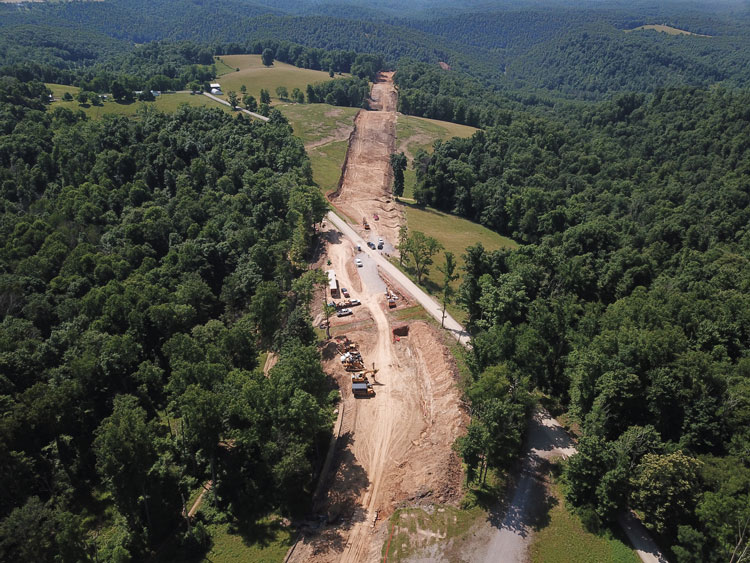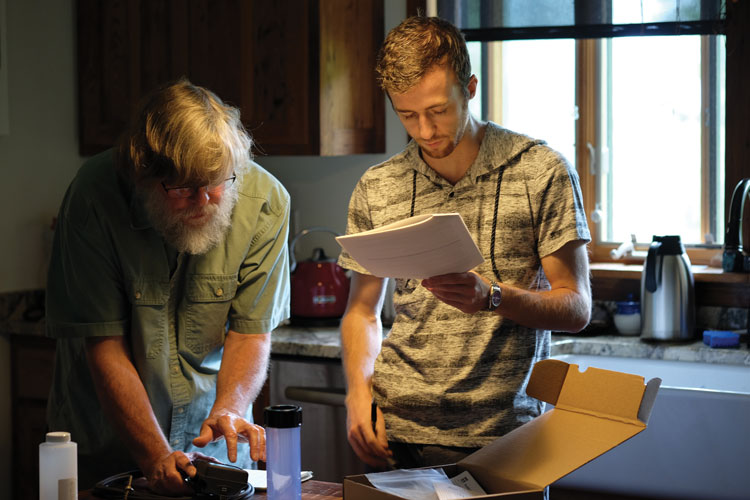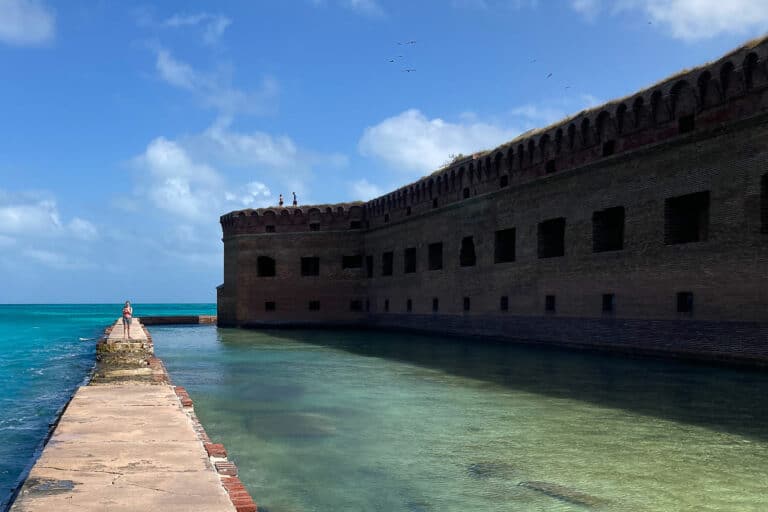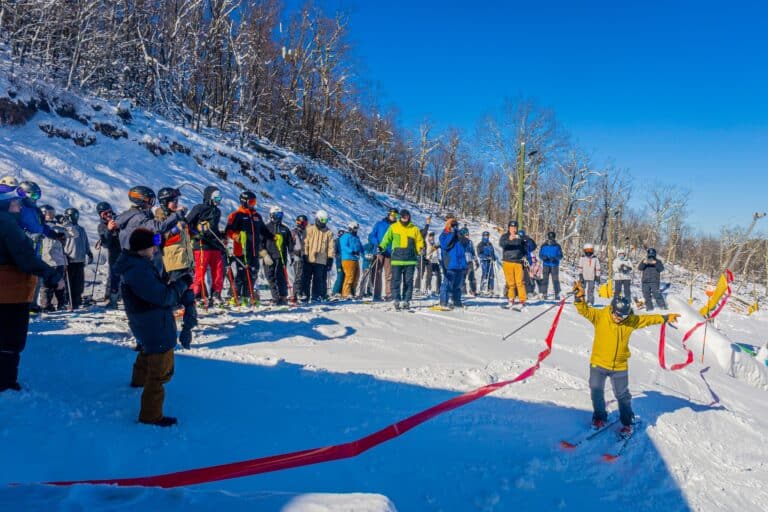A volunteer army of citizen scientists is watching pipeline construction and safeguarding waterways

More than 50 residents pack into the Rockfish Valley Community Center in Nellysford, Virginia, to learn how to fight pipelines even as they begin going into the ground. Coordinators of the Pipeline Compliance Surveillance Initiative (CSI) are teaching this group how to analyze aerial photographs shot by airplanes and drones and report construction violations that they expect to see along the Atlantic Coast Pipeline’s 600-mile path through their little corner of Nelson County.
“Government officials have said that they don’t have the resources to investigate this stuff and that they are only going to be responding to direct complaints,” explains Joyce Burton, Friends of Nelson’s landowner liaison. “If construction continues, it’s going to take a lot of bodies on the ground and sitting at computers to keep up.”
Pipeline CSI has been hosting workshops across the region to build an army of citizen volunteers who are stepping up to protect streams and forests in their own backyards. The Pipeline CSI works through a mix of remote and local volunteers to ensure strict application of environmental laws and regulations for pipelines.

At least once every two weeks, the Pipeline CSI’s Air Force volunteer pilots fly the Atlantic Coast Pipeline’s proposed route with high resolution cameras taking 20 high-quality geotagged photographs every mile. Photos are uploaded to the Pipeline CSI’s state-of-the-art online mapping system where remote volunteers analyze the photos of active construction sites for compliance violations. If further investigation is required, CSI operators dispatch licensed drone pilots or first responders armed with cameras and water quality monitoring equipment to collect more nuanced, site-specific data.
If the Mountain Valley Pipeline (MVP) further south is any indication of what lies ahead for those resisting the ACP, however, it may be a long fight for the Pipeline CSI. Since construction began on the MVP in April, citizen volunteers with Mountain Valley Watch (MVW), a sister initiative to the Pipeline CSI, have presented over 500 violations to Virginia’s Department of Environmental Quality (DEQ). However, they have received very limited responses from DEQ.
“In the end, if DEQ doesn’t respond, then that’s when we bring in our lawyers,” says Burton. “We may be able to slow the pipeline down enough for several other pending legal challenges to make their way through the court systems. And even if we fail to stop this pipeline, by showing the inadequacies of what the regulatory bodies demand, we may have a role in changing the way pipeline decisions get made and what protections get put in place for future projects.” In this way, the Pipeline CSI is about much more than resisting the pipeline; it is also about empowering citizens to stand up for justice far beyond its path.
Says Burton, “We are writing the playbook for how citizens can respond to extractive industries even when the playing field is so tilted against us.”
Pipeline CSI is currently seeking citizen volunteers. Even if you do not live along a pipeline route, you can sign up at pipelineupdate.org/csi to review aerial photos collected by the Pipeline Air Force from anywhere with an internet connection.







